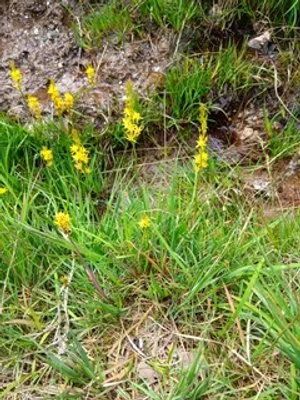The Welsh Senedd’s Climate Change, Environment and Infrastructure Committee recently issued a consultation inviting comments on proposed future priorities for its work. One comprehensive response was submitted from the Wales Working Party of the UK Environmental Law Association ‘UKELA’ –
https://business.senedd.wales/mgConsultationDisplay.aspx?id=527&RPID=1034067107&cp=yes
This is an extract of my own suggestions in response to the consultation -
Environmental Governance
Notwithstanding the sterling work undertaken by the Interim Environmental Protection Assessor for Wales Dr Nerys Llewelyn Jones, it is suggested that enactment of legislation to deliver full time governance of environmental law in Wales is overdue and should be a priority for the Senedd Committee.
Post Brexit environmental law landscape
Retained EU Law (Revocation and Reform) Act 2023
This legislation will continue to impact Wales despite the strong opposition to it from the Welsh Government. The legislation was much criticised during its passage for the ways in which it limited Parliamentary scrutiny and excluded public consultation altogether, as well as having a provision requiring any replacement legislation to be deregulatory and being uneven in its application to devolved Parliaments. It would seem that the best response would be to deliver maximum Parliamentary scrutiny and opportunities for public participation in the debates on what legislation should be retained or replaced.
Trade Agreements
These only get briefly debated in the UK Parliament once it is almost too late to do anything about the content of the agreements, and the environment stands at the back of the queue of the issues to be addressed. The Senedd Committee would do a real public service if it focussed on becoming better informed in time to influence outcomes, working alongside other Committees with a relevant interest in the Senedd and beyond. For example, how would a UK-India trade agreement affect Welsh agriculture, and how would its provisions affect the use of chemicals and pesticides in the UK as a whole and Wales in particular?
Freeports policy and regulation
If Wales is to have two Freeports, in Milford Haven and Ynys Mon https://www.gov.wales/wales-new-freeports-unveiled what environmental laws will or will not apply in such Freeport areas, and what Parliamentary scrutiny is being provided on that issue?
Monitoring and Enforcement
Monitoring and enforcement is a really big issue for Wales and my suggestion would be that not enough is being done about it. More than half of Wales’ rivers do not meet good ecological status. This is a key area for the Senedd Committee to investigate if it really wants to make a difference. Are the resources for monitoring and enforcement by Natural Resources Wales adequate, and effectively applied? Is that reflected in outcomes on the ground? Are problems such as illegal waste sites and river pollution being properly dealt with?
On the other hand, Citizen Science projects are really making a difference, and in the Wye catchment are getting to be national examples of effective action. The Senedd Committee should be very well informed about them, and in this area at least Wales is leading.
Agriculture & Environment
Agriculture is contributing significantly to water and soil pollution, from pesticides and nitrates and phosphates, as can be seen from the debates on the current state of the Wye and Usk rivers. Yet (as the House of Commons Environmental Audit Committee report on Water Quality in Rivers underlined) there are many contributions to declining river health and water quality, including agriculture, but also including sewage discharges from storm water outfalls, and the use of household chemicals. The Senedd Committee needs to reflect this by being informed on different aspects of agricultural policy impacting the environment, definitely including Chemicals and Pesticides but also Nutrient Neutrality issues, while being sufficiently well informed to keep this in context. It may be interested to note the following article from Professor Sir Dieter Helm CBE, which incidentally refers to the ‘sheer environment vandalism’ of pollution of the River Wye, and advocates a catchment approach -
The muddle of nutrient neutrality - Dieter Helm
Statutory Biodiversity Targets
The Kunming-Montreal Global Biodiversity Framework December 2022 is now the main benchmark for progress or lack of it. What are the current plans in Wales to halve impacts of pesticides and chemicals? What are Wales’ plans to meet the targets of the Global Biodiversity Framework and to ensure protection of 30% of its land and seas? Some of these questions are addressed in Wales’ Biodiversity Deep Dive, but the Senedd Committee ought to be leading Parliamentary scrutiny of its delivery. There is also an unresolved difficulty between Wales’s commendable ambitions on net zero and climate, on the one hand, and on the other its proposals to site renewable energy projects in protected areas such as SSSIs, where the Global Biodiversity Framework is calling on all governments to enhance and extend protection of such areas.
William Wilson
Barrister

